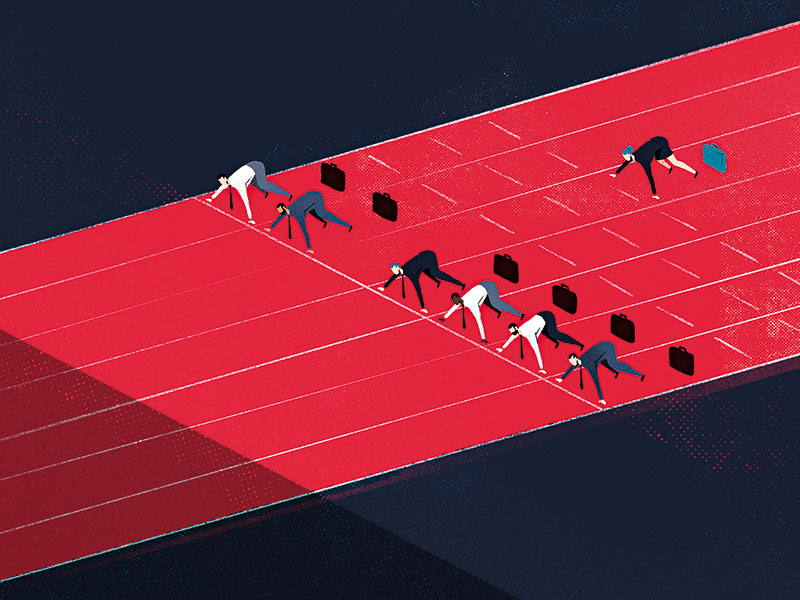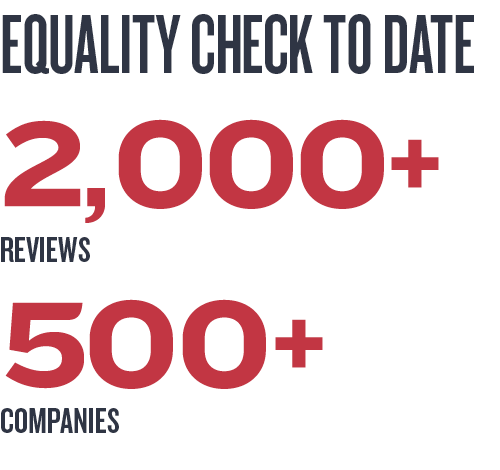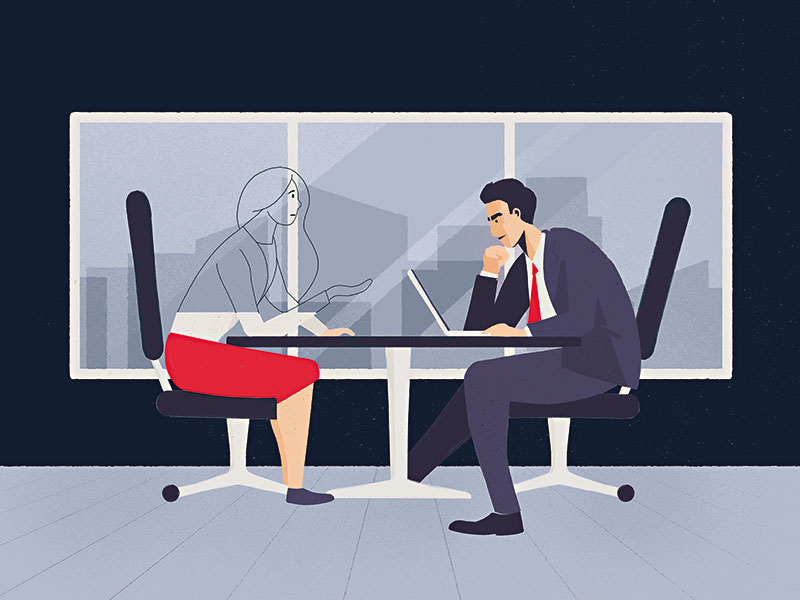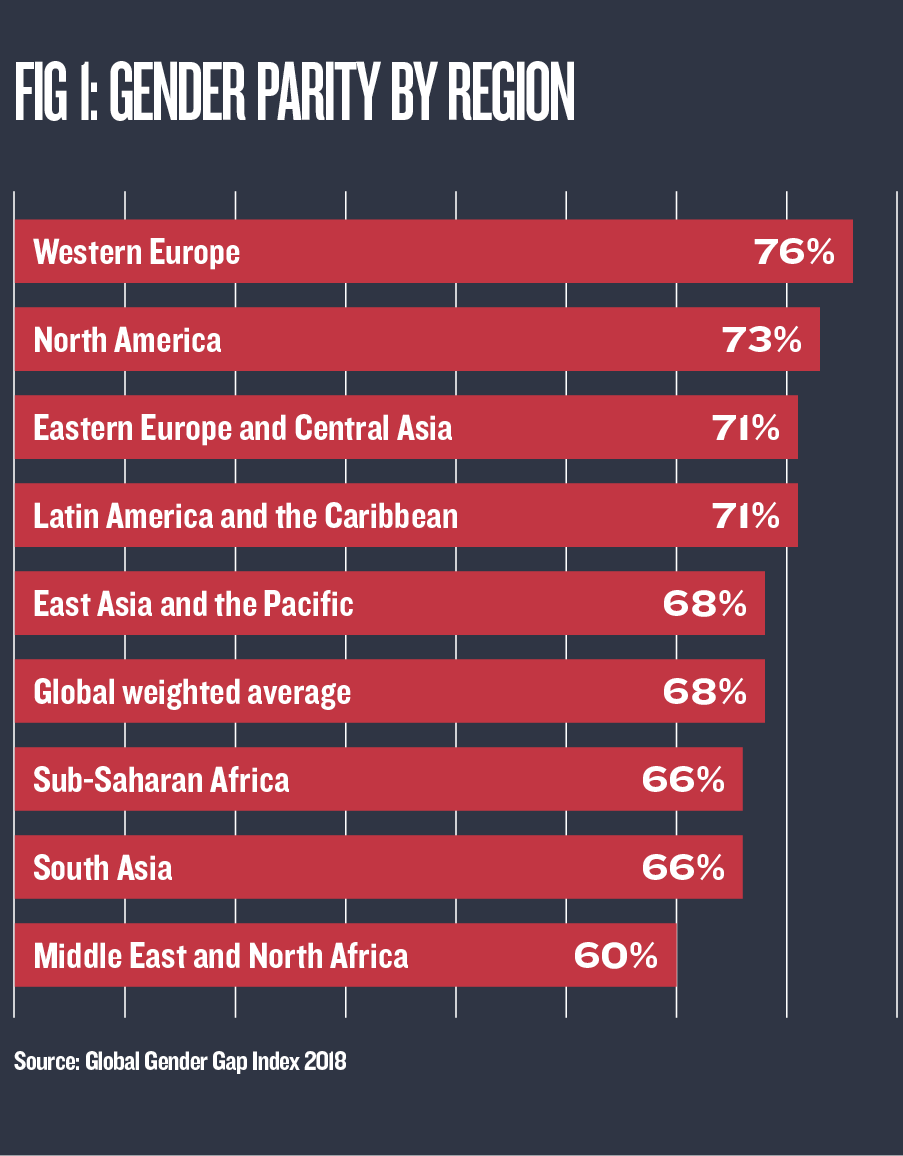
In 2017, the World Economic Forum made an alarming announcement: at the current rate of progress, women around the world will have to wait 217 years to achieve gender equality in the workplace. In fact, that number had slid backwards, reverting to where it stood in 2008.
Across Europe, the issue of gender inequality in the workplace is well understood. Research continually points to a lack of women at the executive level and emphasises the value of employing more women in senior positions. McKinsey & Company’s 2018 Delivering Through Diversity report, for instance, found that companies with the strongest rates of gender diversity on their executive teams were 21 percent more likely to outperform on profitability and 27 percent more likely to have stronger value creation.
Yet progress towards gender parity has been slow. McKinsey’s Women Matter 2016: Reinventing the Workplace to Unlock the Potential of Gender Diversity report found that, of the companies in its sample implementing diversity measures, just 24 percent employed more than 20 percent of women in top positions. “In many places, it’s still a lot of talk and not enough action,” Marie Sunde, co-founder and CEO of Equality Check, a community-led employee review platform that rates equality within organisations, told European CEO.
She’s got this
In September 2014, actor and UN Women Goodwill Ambassador Emma Watson announced a new campaign to bring more men into the fight for gender equality: HeForShe. In her speech, Watson admitted she worried about being unqualified to speak about gender inequality: “In my nervousness for this speech and in my moments of doubt I’ve told myself firmly, ‘If not me, who? If not now, when?’ If you have similar doubts when opportunities are presented to you, I hope those words might be helpful.”
Equality Check gives employees the opportunity to speak out anonymously and provide other workers with a transparent account of a company without risking punishment
Sunde, who grew up surrounded by discussions about equal rights, was electrified by the speech: “I came back from that [feeling] very inspired and really wanted to do something within the field of unconscious gender bias, which was not really a topic back in 2014.” Unlike deliberate prejudices, unconscious gender biases are the judgements we make quickly and unknowingly based on personal experiences, societal stereotypes and cultural context, according to the charity Advance HE.
While less overt, unconscious bias can be just as damaging as conscious bias. For example, Advance HE points to a 2012 study that found that, when given identical applications from men and women, universities’ science departments were more likely to rate male candidates as being better qualified, award them higher starting salaries and invest more in their development.
Following Watson’s speech, Sunde partnered with childhood friend Isabelle Ringnes and the two began working on social media campaigns to address unconscious discrimination. At the time, Sunde was working as a surgical resident at one of Norway’s largest hospitals, Akershus University Hospital, but was becoming increasingly frustrated in the male-dominated profession. “Surgery had been my big passion for about 10 years,” Sunde said. “As a surgeon, I experienced a lot of unconscious, and sometimes very conscious, bias – and also sexual harassment.”
Sunde was not alone: according to a 2018 study published in the Journal of the Norwegian Medical Association, 22 percent of female doctors had experienced sexual harassment at work, as a student or at events arranged by the Norwegian Medical Association. These experiences fuelled the fire for Sunde’s tongue-in-cheek side project with Ringnes, #HunSpanderer (or, in English, #ShesGotThis). In 2015, the two launched the social media campaign in Norway, inviting women to pick up the bill for a meal with a man in exchange for men joining the gender equality movement. “As a first step towards a more equal society, we encourage one week where women get the chance to balance the inequality – by picking up the cheque,” the #ShesGotThis website reads. “In return, guys join the conversation.”
The hashtag continued to gather steam over the next few years. A second campaign in 2017 focused on workplace discrimination and, in 2018, #ShesGotThis paired with several organisations to raise awareness about unconscious bias, holding a roundtable discussion led by 30 Norwegian business executives. The campaign soon spread to several other countries, signalling to Sunde and Ringnes that they had identified a global issue.

The #MeToo movement also took off in 2017, spreading around the world and empowering victims of sexual harassment and assault to speak out. Despite this, Sunde accused the medical community in Norway of remaining largely silent on such issues, with the existing power structure making it a major risk for anyone in the medical field to raise their voice. After feeling that she received negative responses from senior management at the Akershus University Hospital when she spoke out herself, Sunde decided to quit her job as a surgeon and “go all in” on the new company she and Ringnes were building.
Power to the people
In March 2018, Sunde and Ringnes founded Equality Check, a platform that aims to give employees a transparent view of companies’ action – or inaction – around issues such as diversity and equality. Like Glassdoor and TripAdvisor, the platform allows any employee to write a review about the company they work for by answering questions relating to work-life balance, discrimination and support from management.
Reviewers are prompted to indicate to what degree they agree or disagree with statements such as ‘this company provides equal opportunities for everyone’, ‘management provides the support and resources I need to succeed and develop my career’, and ‘I never experience unconscious bias’. Importantly, the platform gives employees the opportunity to speak out anonymously and provide other workers with a transparent account of a company without risking reprimand or punishment.
“[Equality Check gives] the power to the people, so that if I, for instance, choose to apply for another job in surgery, I can go there and I can see [which] hospital will… have the most opportunities,” Sunde said. This, she and Ringnes believe, will be the “key catalyser” to encouraging companies to achieve gender balance at a faster rate. “Although there is a focus on this, there is not enough action,” Sunde said. With a company’s public image at stake on Equality Check, Sunde thinks executives will be prompted to shift from talk to action.
“This will be very much in the interest of employers as well, because they… want to both recruit and retain talent,” she said. The companies that understand this and act on any gaps in equality in their workplace will be able to recruit the top talent and achieve the best results.

Taking care of business
Between 2015 and 2017, Sunde and Ringnes noticed a big shift in businesses’ stances on gender discrimination. As Sunde told European CEO: “[There was now a] genuine will within the business community and the workplace to actually become more gender-equal.”
But there was still a problem: business leaders did not know what to do. Sunde believes the lack of research into solutions to workplace inequality has been a significant reason why so many companies fail to implement successful diversity measures. In fact, McKinsey’s Delivering Through Diversity report found that the 346 companies (principally from the UK and US) included in its 2015 research had only managed to increase average gender representation on their executive teams by two percentage points by 2018.
“There is an increasing amount of research on the problems [caused by gender inequality], but there is little research on solutions,” Sunde said. This, she believes, leads companies to make missteps: “We know that when you make the wrong diagnosis, the treatment will not work.”
Businesses are also implementing their treatments without assessing how effective they truly are. “If you haven’t tested the treatment, you have no idea whether or not it’s going to work,” Sunde said. For these reasons, Sunde and Ringnes have created Equality Check for Business, a tool that uses technology to review a company’s internal data and find areas of weakness on gender equality, as well as identify solutions.
The technology evaluates a set of tested indicators that measure gender equality across a number of segments within a company. A visual report is then created for the business, presenting a heat map of the different areas that are in need of improvement, as well as those that are functioning well.
With a company’s public image at stake on Equality Check, Marie Sunde thinks executives will be prompted to shift from talk to action
For example, if recruitment is identified as an area where the company is failing due to gender discrimination, executives will be given access to the research with best-practice solutions on improving gender equality in the recruitment process. Companies will be able to track their own progress internally, and have the opportunity to share their data publicly and compare it with others that use the platform should they wish to do so.
The platform is currently working with 11 founding partners, including consultants Accenture and KPMG, media companies Nordic Entertainment Group and Schibsted, and financial firms DNB and FSN Capital. Equality Check for Business also works with Norway’s Centre for Research on Gender Equality (CORE) and has fundraised NOK 3m (€311,235) to validate solutions for reaching gender parity in the workplace over the next few years.
“There are no validated solutions today,” Sunde said. Best-practice solutions, which have generally been accepted as the most effective tools for change, are “not ideal” and could be to blame for the low success rate of gender equality initiatives, according to Sunde. But with CORE’s additional research, she believes Equality Check for Business will be able to ensure its solutions are effective.

World of difference
There are no borders on the gender inequality problem (see Fig 1), and Equality Check aims to take its concept around the world. “That’s been our goal from the beginning, because this is a very global issue,” Sunde said.
The company received a boost this year in the form of an investment from Singapore-based start-up generator Antler. In June, following Antler’s first programme in Stockholm, Equality Check announced the firm had invested $100,000 (€89,939) into the company, which allowed the founders to hire their first technology developer.
Antler specialises in helping start-ups expand the scale of their business quickly, and Sunde said it has provided significant support to Equality Check, with founder and CEO Magnus Grimeland proving particularly helpful. At the company’s event in Stockholm, Grimeland emphasised Antler’s drive to produce international success stories – this “global ambition” was one of Sunde’s principal reasons for wanting to partner with Antler.
Equality Check has already received around 2,000 reviews for more than 500 companies in Norway. “That’s a very clear signal [to] us that this is something people really want,” Sunde said. Although Equality Check is only currently being marketed in Norway, the platform is technically open to anyone, no matter where they are in the world. Sunde told European CEO that Equality Check has received reviews from Germany, the US and Afghanistan.
The companies that act on any gaps in equality in their workplace will be able to recruit the top talent and achieve the best results
With reviews pouring in, the beta version of the Equality Check platform will go live towards the end of 2019. “We’ll spend the first few months [ensuring] that we have a good product market fit in Norway and Sweden,” Sunde said. “After that, our goal is to launch globally very quickly.” The founders have set their sights on London, New York and San Francisco next, with a marketing launch planned for 2020 or 2021. Equality Check is also planning another pre-seed fundraising round in Q3 2019.
Core objective
For now, though, the focus remains on Norway: according to a gender balance scorecard by CORE, just 10 percent of the largest 200 Norwegian organisations employ a woman as CEO, while women only occupy 22 percent of positions in the country’s top executive committees. Although Norway is regarded as one of the world’s most equal countries, Sunde believes that “when it comes to the numbers, there’s still quite a long way to go”.
Sunde is well versed in the biases female surgeons receive, but her experience founding a company as an entrepreneur has been very positive so far. “I think the major challenges as a female founder will come when you start fundraising, and we haven’t started our major fundraising rounds yet,” Sunde told European CEO. In fact, a study conducted by researchers from Harvard, MIT and the Wharton School of the University of Pennsylvania found that even when male and female entrepreneurs presented investors with identical business plans, investors were far more likely to offer funding to men.
Part of the study involved showing investors a video with an identical voiceover from a man or a woman. After watching the video, nearly 70 percent of the investors wanted to back the male-voiced business, while just 31 percent chose the female voice. “We like to think that… we are objective – that we only look at skills, experience and backgrounds,” Sunde said. “But it turns out that we are not, and so unconsciously we are undermining women.”
In its most recent report, the World Economic Forum said it will take another 202 years to close the economic gender gap at today’s rate of progress. Although the gap has narrowed since 2017, there is still much work to be done. With the assistance of tools like Equality Check, which lift the veil on workplace biases and nudge companies towards adopting more effective policies, the world may not have to wait two centuries to achieve gender parity after all. For a country like Norway, which has already achieved many milestones in terms of equality, erasing unconscious biases from the workplace could be the key to ending gender discrimination.

